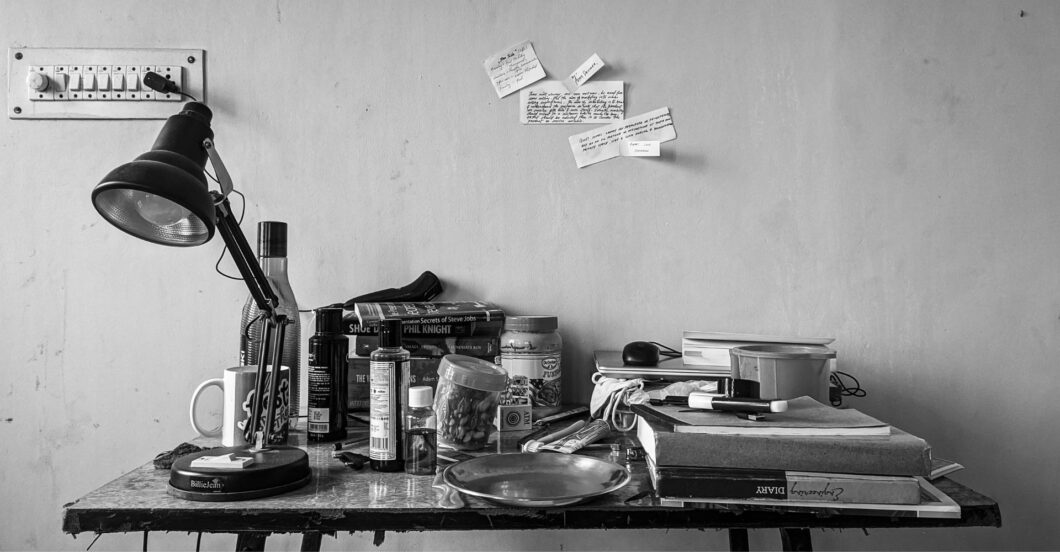I do not want him to see me sitting in my recliner by the window. Only I am aware of this secret—that I ordered furniture online because it would be too heavy for me to carry to the second floor alone. I crouch behind the wall, watch him brace himself, watch him balance the first package on his shoulder like a see-saw, a dresser for my daughter, her pile of unwashed clothes a mountain in the hallway outside her bedroom door. I think maybe I will bake him cookies for when he returns with the other packages another day, and I watch him walk back to his truck. He emerges with the rest, a desk and chair. I thought they would arrive on Tuesday. Today is Saturday and I am embarrassed by the cluttered kitchen table that was clear a week prior—the laundry, the dirty dishes, the trash bin overflowing. This day is already accounted for. What if he knocks on my door? How do I explain this grief, this excess meant to mold our lives into something more manageable—these books in piles along the living room, kitchen, my bedroom, these blankets for comfort, these papers so I do not forget, these paint-by-number canvases to help us self-soothe, self-cope, these mugs half-filled, abandoned in my bedroom, beside the sink in the kitchen, on the table beside my recliner, these bottles of sunscreen to protect our skin, these tacks to hang snippets of poetry from walls to remind us that our feelings are valid, human, that we are more than these bodies, more than our ailments, our failures, and I am embarrassed that I make everything out to have meaning. Even the FedEx man as he returns to his truck—the soft curves of his hips, the small of his back, the camouflage bill of his hat tilted towards pavement. I whisper an apology as he drives away.
Photo by Himanshu Yadav on Unsplash
